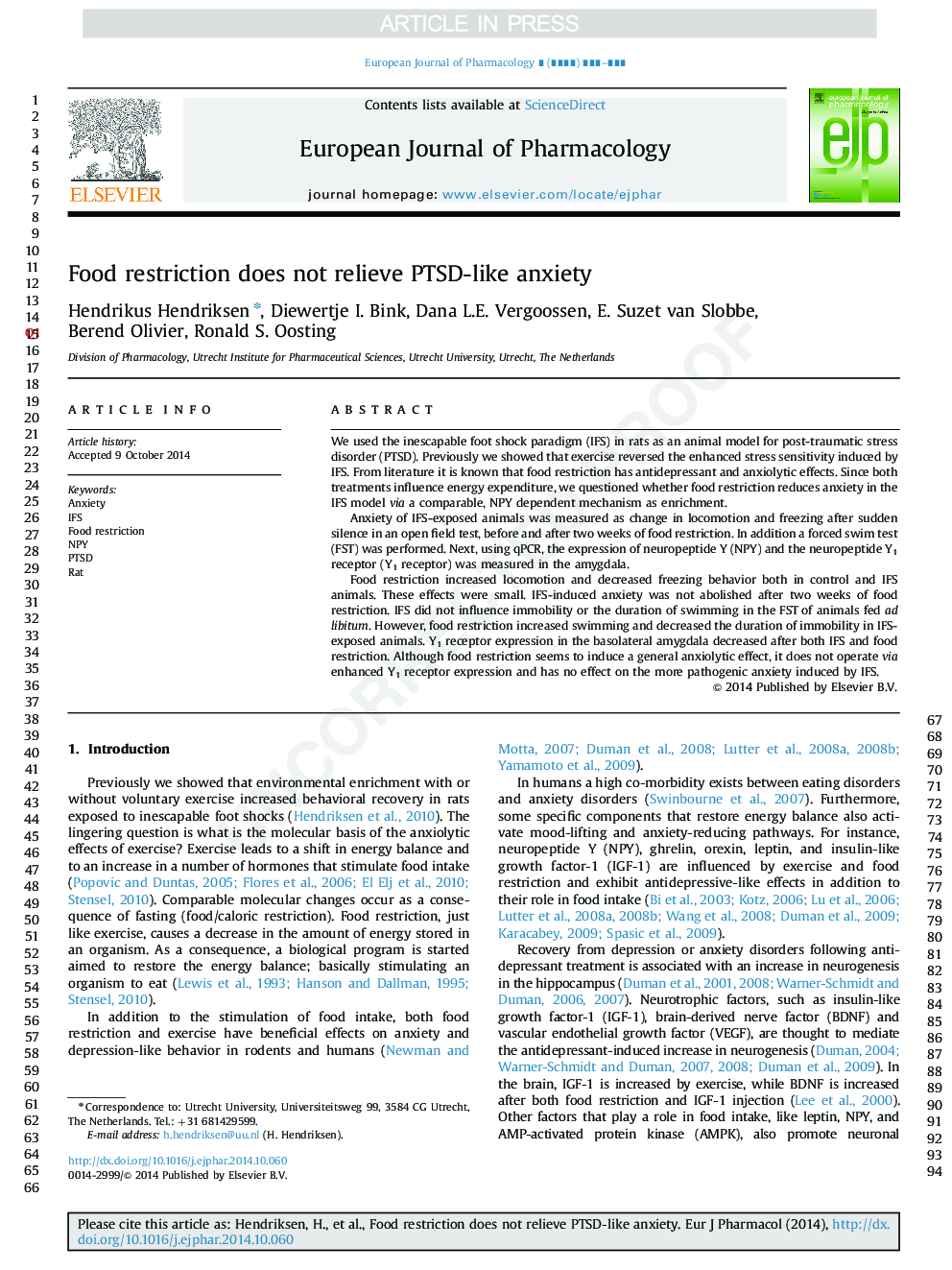| Article ID | Journal | Published Year | Pages | File Type |
|---|---|---|---|---|
| 5827477 | European Journal of Pharmacology | 2015 | 6 Pages |
Abstract
Food restriction increased locomotion and decreased freezing behavior both in control and IFS animals. These effects were small. IFS-induced anxiety was not abolished after two weeks of food restriction. IFS did not influence immobility or the duration of swimming in the FST of animals fed ad libitum. However, food restriction increased swimming and decreased the duration of immobility in IFS-exposed animals. Y1 receptor expression in the basolateral amygdala decreased after both IFS and food restriction. Although food restriction seems to induce a general anxiolytic effect, it does not operate via enhanced Y1 receptor expression and has no effect on the more pathogenic anxiety induced by IFS.
Related Topics
Life Sciences
Neuroscience
Cellular and Molecular Neuroscience
Authors
Hendrikus Hendriksen, Diewertje I. Bink, Dana L.E. Vergoossen, E. Suzet van Slobbe, Berend Olivier, Ronald S. Oosting,
